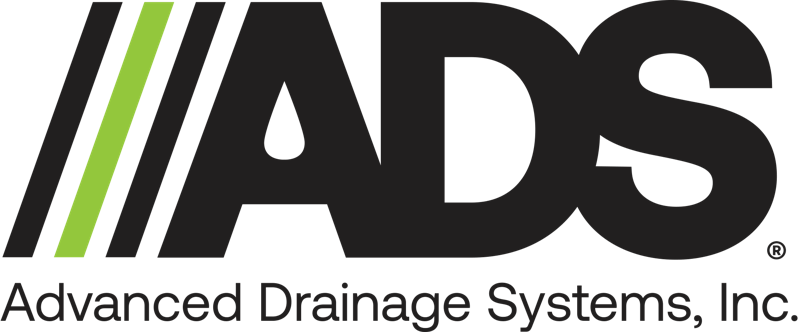Industry News and Awards
June 1, 2020 / 5 minute read
How ADS Earns Its (Green) Stripes with Recycling
The pipes, fitting and chambers that Advanced Drainage Systems Inc. makes to drain fields, hold storm water and control erosion not only manage precious water resources but also come from an eco-friendly raw material.
An ADS subsidiary, Green Line Polymers, recycles high density polyethylene plastic and formulates it into recycled resin for the No. 3 extruder of pipe, profiles and tubing in North America, according to Plastics News' newly released ranking.
Hilliard, Ohio-based ADS saw sales of $1.385 billion in fiscal year 2019, up 4 percent from the prior fiscal year due to price increases, better product mix and growth in domestic construction markets. The company's thermoplastic corrugated pipe is generally lighter, more durable, more cost-effective and easier to install than comparable products made from traditional materials.
Green Line adds to ADS's appeal, helping it earn its green stripes on pipes for storm and sanitary sewers, highway and residential drainage, agriculture, mining, wastewater treatment and waste management. With seven U.S. sites and one in Canada, the subsidiary keeps PE detergent bottles, plastic drums and telecommunications conduit out of landfills and turns them into plastic pellets for infrastructure products that meet or exceed industry standards.
ADS says it has become the largest consumer of recycled HDPE in the U.S. The company diverts about 400 million pounds of plastic from landfills annually.
The company's efforts to use recycled content resonates with customers, such as municipalities and developers of building certified through the Leadership in Energy and Environmental Design (LEED) program, ADS President and CEO Scott Barbour said in a phone interview.
"We use material that is more or less from the region and we recycle it to make it into a useful, durable product that stays out of the circular economy of plastics for 40, 50, 60 years. That has some real benefit to these customers," Barbour said.
ADS officials estimate that the U.S. markets served by the company's products represent about $11 billion of annual sales opportunity.
Going Green
Thirty years ago, ADS used almost all virgin resin in its pipes. Now products like Mega Green, a dual-wall corrugated HDPE pipe with a smooth interior for hydraulic efficiency, are up to 60 percent recycled HDPE.
ADS started using recycled material about 20 years ago and then found itself ramping up purchases from outside processors in the 2000s.
"We knew we'd be consuming a lot of this," Barbour said. "That's how the vision for Green Line Polymers started."
ADS opened Green Line in 2012 in Pandora, Ohio, to recycle post-industrial HDPE and then added facilities for post-consumer HDPE. Last year, the subsidiary hit a milestone that marked 1 billion pounds of reprocessed plastic.
ADS has invested $20 million to $30 million over the last 15 years to increase its recycled content, expand Green Line to eight sites, line up procurement resources and hire chemical engineers, chemists and quality control experts, Barbour said.
In addition to Pandora, the subsidiary has dedicated recycling facilities in Cordele, Ga.; Waterloo, Iowa; and Shippenville, Pa.; and combined recycling and manufacturing facilities in Bakersfield, Calif.; Waverly, N.Y.; Yoakum, Texas; and Thorndale, Ontario.
The company, which has a global workforce of 4,400, does not break out the number of Green Line employees. Their contribution, though, is measurable: Ninety-one percent of ADS's nonvirgin HDPE raw material is internally processed through Green Line operations.
"That shows the scale of what we're doing. It's a pretty big operation," Barbour said. "Many of our plastic competitors use recycled material to a degree, but none of them are doing this kind of vertical integration."
ADS's single-wall pipe has the highest recycled content of its product lines, he added, while the dual-wall pipe — the company's largest line — has some products with recycled content and others that are all-virgin HDPE to meet regulations and codes for public works projects.
Getting it RightADS spends a lot of time, money and effort on quality control, investment in equipment and testing capabilities, Barbour said.
"We want to make sure the material is enhanced so that it is the best possible formula to run through our extrusion machines," he explained. "It's like having a gasoline perfectly formulated for a race car. We refine it with that mind."
The enhanced material increases throughput in the extrusion and corrugating processes, which, in turn, improves the production rate and quality, which leads to better durability, reliability and consistent handling, according to Barbour.
"We want to be in the front of leading the reuse of recycled materials in the construction industry for our types of products," Barbour said. "We are there, and we're finally telling people that."
In the U.S., corrugated HDPE pipe sector, ADS competes mostly against Los Angeles-based JM Eagle; Willmar, Minn.-based Prinsco Inc.; and Camp Hill, Pa.-based Lane Enterprises Corp.
Cities in New York state and Northern California are among the first ADS customers focused on making infrastructure improvements using sustainable products.
"It's on the edge of the market and emerging," Barbour said.
ADS is a step ahead of other manufacturers, he added, in terms of experience, breadth of engineering and technical competence, and national reach.
The company has a good message to spread, according to Barbour.
"We manage a precious resource: water," he said. "Nothing is more central to sustainability than a healthy water supply and healthy management of water, and we do that using a lot of recycled materials."
